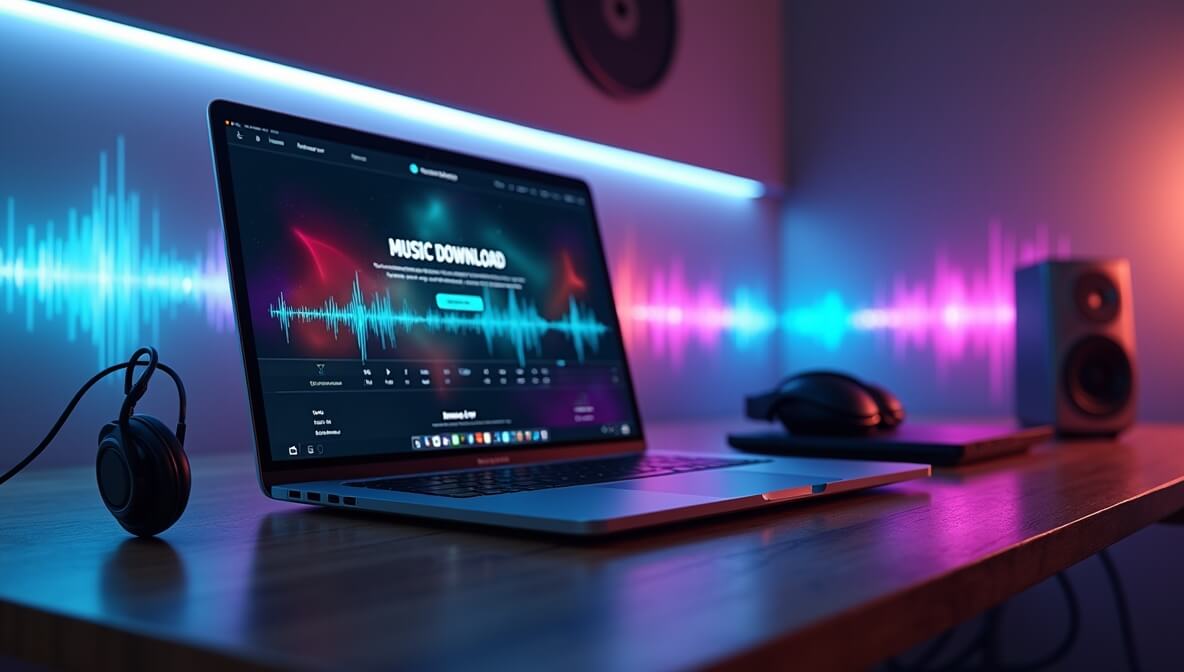August 15, 2025

The internet has completely transformed how we consume music, giving listeners access to millions of tracks at their fingertips. Yet, despite this convenience, myths about music downloads persist—often causing confusion or hesitation. Concerns about legality, audio quality, or security can prevent music lovers from fully enjoying digital music.
Here, we break down the most common misconceptions and provide guidance on navigating the world of music downloads safely and confidently.
Many believe that downloading music is inherently illegal, associating it with piracy and potential legal consequences.
Reality: Not all downloads are illegal. Numerous legitimate platforms provide both free and paid downloads, often directly from the artists or authorized distributors. Many independent musicians release tracks under licenses that allow free distribution, such as Creative Commons.
Tips for legal downloads:
For beginners interested in safely expanding their music library, resources like music distribution explained – getting your music on Spotify and Apple Music offer insights into how artists distribute music legally online.
Another widespread belief is that free downloads are inherently low-quality, often compressed or poorly recorded.
Reality: While some free files may be low bitrate, many reputable platforms provide high-quality audio for free. Independent artists often release music in high bitrate MP3 or WAV formats to ensure their fans experience the best sound possible.
Tips:
For guidance on improving your listening experience, check out digital audio workstations explained – choosing the right software, which can help you understand audio quality and file handling for the best playback results.
Some people assume that every downloaded track comes with malware, putting their devices at risk.
Reality: This is only true if you visit untrustworthy or sketchy websites. Using verified platforms significantly reduces any security risks.
Safety tips:
For additional guidance on music safety and best practices, see understanding audio interfaces – what they do and how to choose, which provides context on trusted audio technology and setups.
With the rise of streaming platforms, many assume that online streaming is superior to downloading.
Reality: While streaming is convenient, it often compresses music to save bandwidth, which can impact sound quality. Downloading music allows you to store higher-quality files, giving you more control over playback and offline access.
Benefits of downloads:
For listeners interested in mastering music playback or production, studio monitors vs headphones for mixing – pros and cons explores how equipment affects audio quality, relevant whether you stream or download.
Some worry that free downloads mean artists don’t get paid.
Reality: Many artists intentionally offer free tracks to expand their audience, generate fan engagement, and drive interest in concerts, merchandise, or future releases. Some platforms also allow "pay what you want" models to support musicians while still offering free access.
Ways to support artists while downloading:
To learn more about artist support strategies, building your fanbase – strategies for indie musicians explains how music downloads fit into growing a sustainable music career.
Downloading music online is not inherently risky or illegal. By choosing verified sources, paying attention to audio quality, and understanding licensing, you can enjoy music safely and even support artists. Whether you prefer high-quality offline files, want to explore independent releases, or are curious about expanding your own musical knowledge, the digital music world offers limitless opportunities.
Further Exploration:
Stay up to date with the latest tips, expert insights, product reviews, and step-by-step guides to help you grow, create, and succeed—no matter your industry or passion.